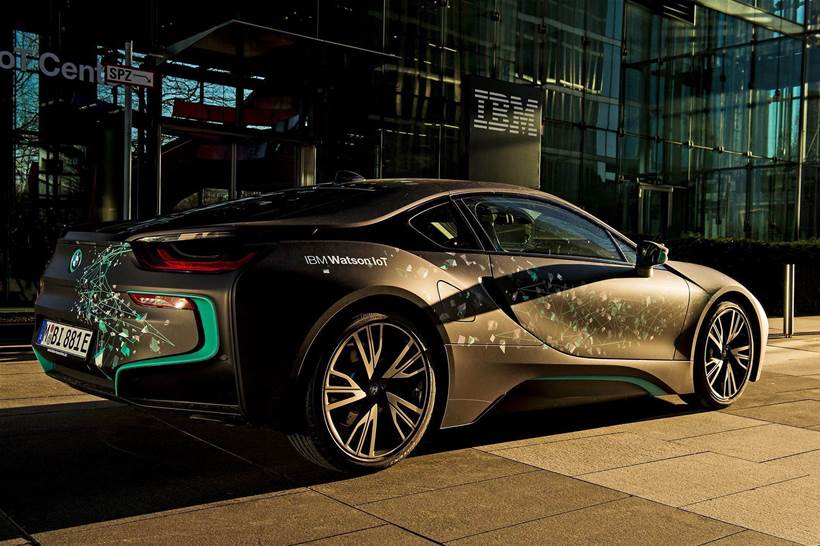German automotive manufacturer BMW Group is ramping up its smart vehicle efforts with the announcement of a collaboration with IBM to explore the role of Watson cognitive computing in future vehicles.
As part of the agreement, BMW Group will co-locate a team of researchers at IBM’s global headquarters for Watson Internet of Things in Munich, Germany, and the companies will work together to explore how to improve intelligent assistant functions for drivers.
BMW is one of the first companies to undertake such an arrangement following IBM’s recent investment of US$200 million into the Munich facility.
BMW is also providing four i8 hybrid sports cars to the Watson IoT facility to be used to prototype solutions that will run on IBM’s Bluemix cloud platform.
IBM said that Watson will be able to demonstrate how new conversational interfaces between cars and drivers can be achieved, and its machine learning capabilities will help future vehicles learn about the preferences, needs and driving habits of their drivers over time.
This, IBM hopes, will allow for the customisation of the driving experience, improving levels of comfort and safety in the process.
IBM will also integrate the car’s manual into Watson, allowing the drivers to ask questions about the vehicle in natural language while still being able to focus on the road.
A longer term goal is to incorporate data from recent IBM acquisition The Weather Company as well as real-time, contextual updates about routes, traffic, and vehicle status, making recommendations to the driver as necessary.
Harriet Green, IBM’s global head of Watson IoT said in a statement: “With this agreement, our companies will work together to lay the foundations so that drivers can benefit from Watson’s conversational and machine learning capabilities.”
“Our insight shows that while the car will remain a fixture in personal transportation, the driver experience will change more over the next decade than at any other time of the automobile’s existence.”
This follows BMW's recent announcement to collaborate with Intel to create a driverless car by 2021.







